China-Africa Hydrogen Forum (Online), a pre-event of the 7th International Hydrogen and Fuel Cell Vehicle Conference and Exhibition (FCVC 2022) co-organized by the International Hydrogen Fuel Cell Association (IHFCA) and the China Society of Automotive Engineers (China SAE), was successfully held on September 14. Supported by Anglo American, the Forum included two sessions s: Keynote Speeches and Roundtable Forum, attended by representatives of Chinese and African governments, industry associations and important enterprises.
The Roundtable Forum was hosted by Dr. Wang Zhi, Deputy Director of Industry and Standards Research Department of IHFCA. At the forum, representatives of various parties delivered wonderful speeches and had in-depth discussions and exchanges on national strategies and policies, industry development status and trends, best practices of hydrogen energy and other related topics.
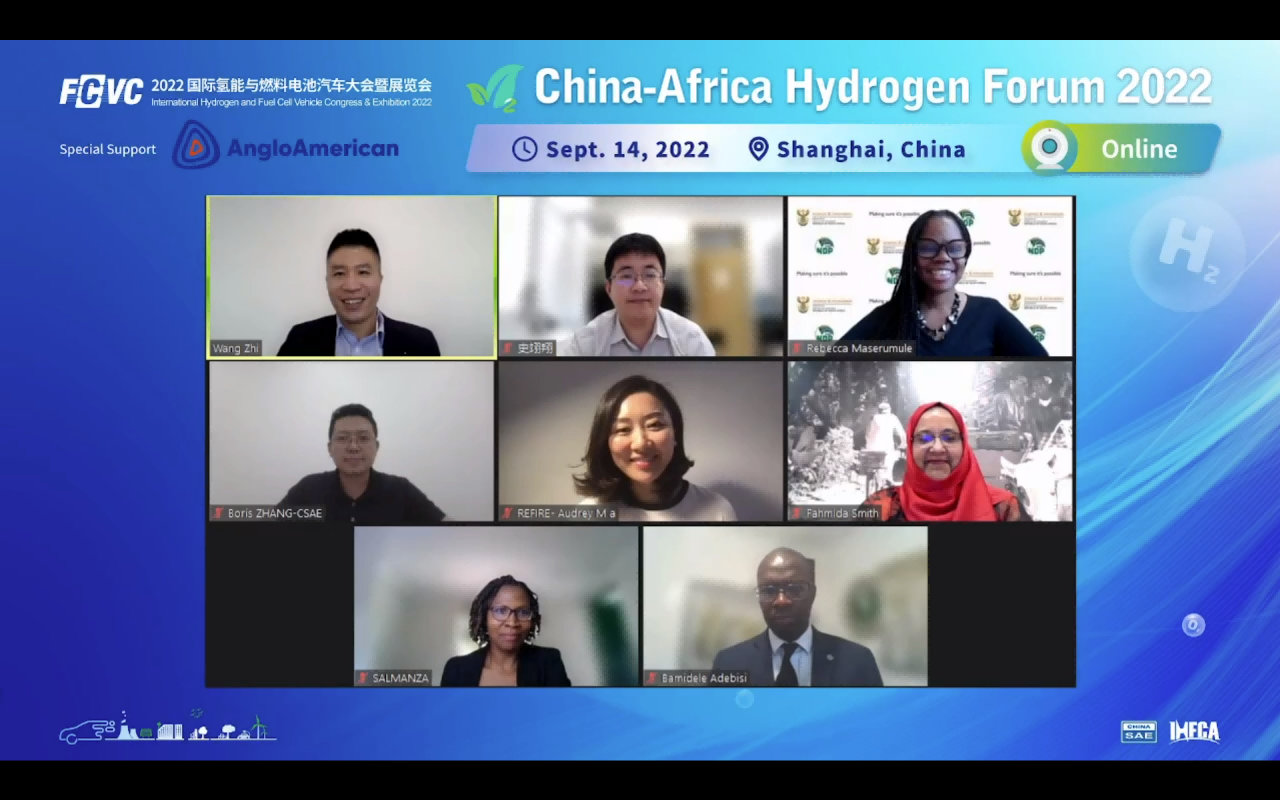
Professor Shi Yixiang from Tsinghua University, who is a member of a special expert group on hydrogen energy technology under the National Key R&D Plan of the Ministry of Science and Technology, presented the challenges China faces in its energy transition and carbon neutrality goals, pointing the importance of hydrogen energy in balancing fluctuations in renewable energy. As a carrier for renewable power storage, hydrogen energy can be well coupled with the chemical industry and the metallurgical industry, and has the advantages of easy chemical transformation, efficient power, safe storage, rapid transportation and distribution, green production and scale transferring.
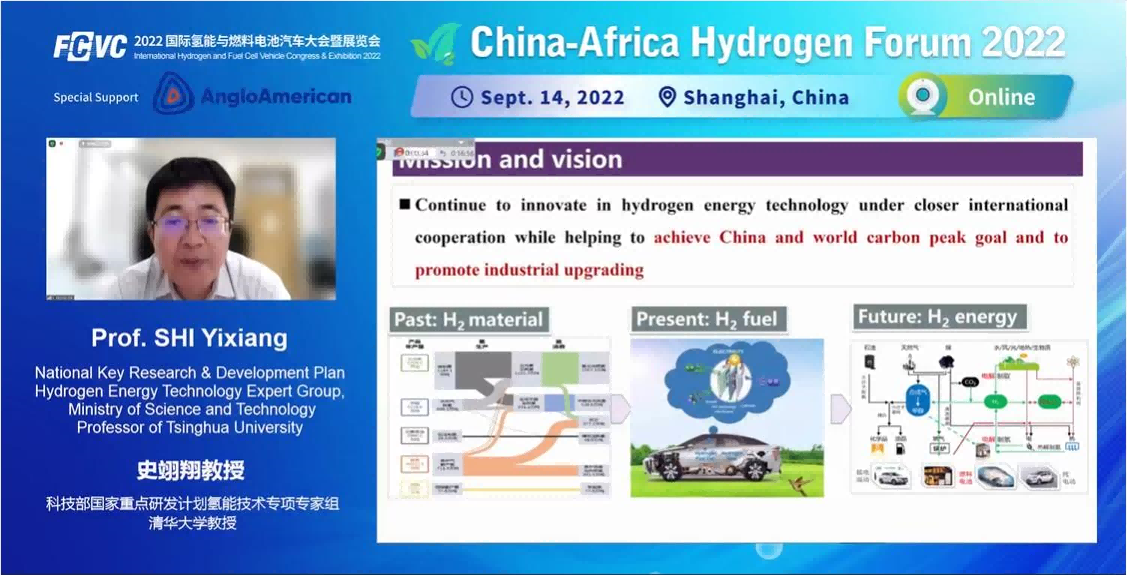
Dr. Rebecca Maserumule, Acting Deputy Director General: Technology Innovation of National Department of Science and Innovation (DSI) in South Africa, presented the African Hydrogen Strategy/Policy/Roadmap. She pointed out South Africa's competitive advantage in hydrogen projects, and South Africa's roadmap for a hydrogen society with ambitious targets to create 20,000 jobs annually in the hydrogen industry by 2030, giving Boegoebai the potential to become a global hub for future fuels.
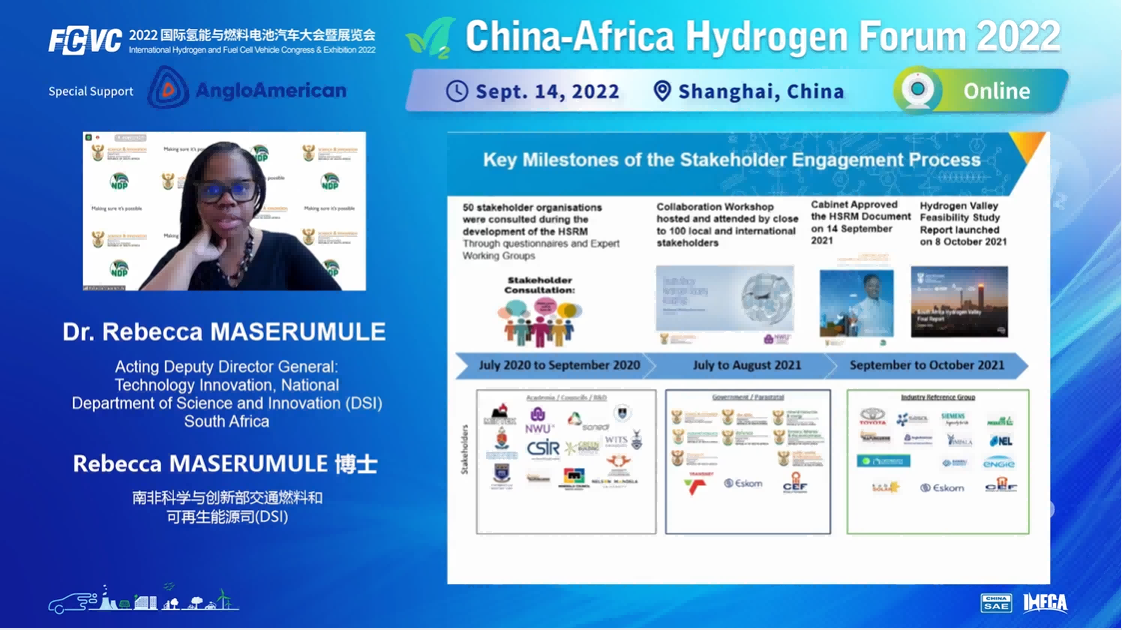
Dr. Zhang Bo, Director of Hydrogen Energy and fuel Cell Vehicle Research Center of China Society of Automotive Engineers, introduced China's hydrogen energy and fuel cell vehicle industry. As early as 2001, China launched a three-pathway framework of new energy vehicle (NEV) development, and fuel cell vehicles are a key part of the framework. In recent years, under the "'30·60' decarbonization" development strategy, the Chinese government has given great importance to the hydrogen and fuel cell industry development, which has accelerated the FCV policy system. Supporting policies from local governments have promoted the industry, and the performance of commercial FCVs has improved due to fuel cell advancement. 2022 will be a critical year for FCVs to scale up and enter into the market.
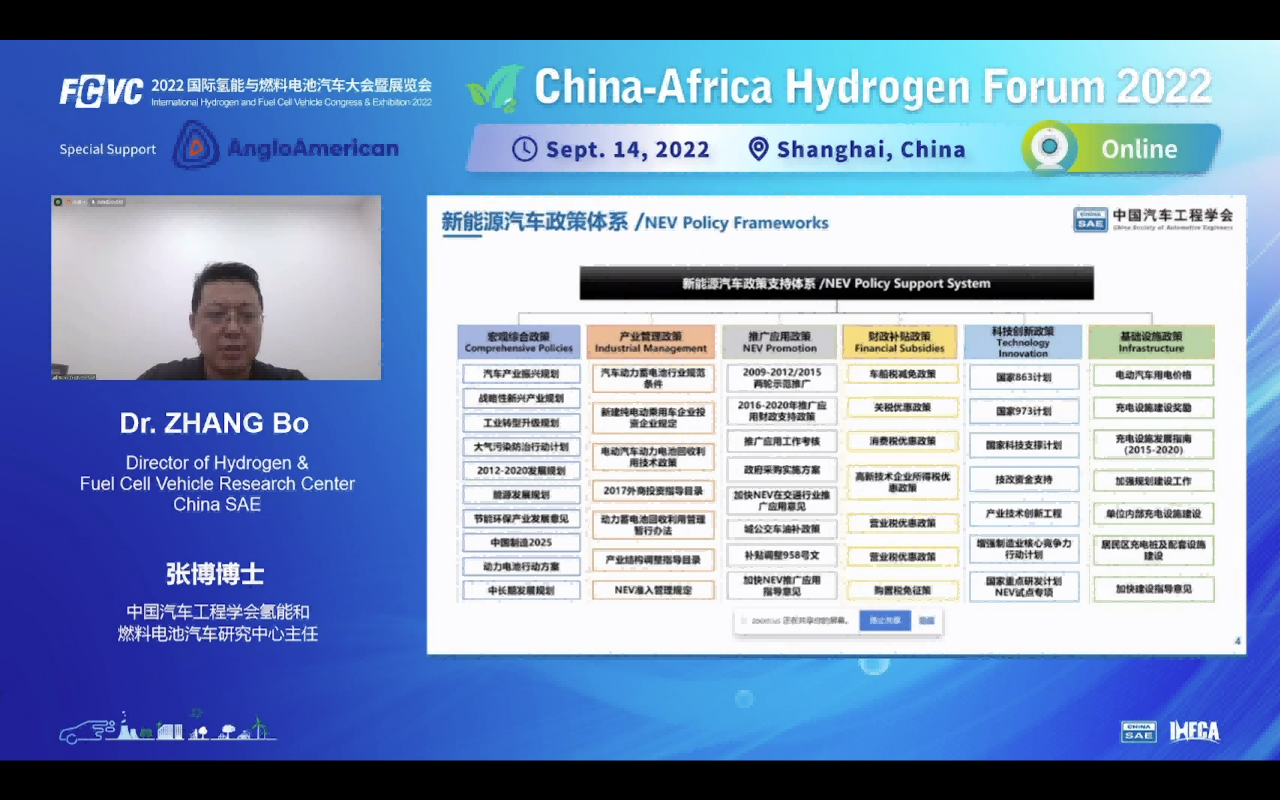
Professor Bamidele Adebisi, Board Member of African Hydrogen Partnership (AHP) / University Professor of Intelligent Infrastructure Systems of Manchester Metropolitan University, analyzed the potential of Africa and the strength of China in terms of green hydrogen in Africa. Africa has low-cost, competitively priced carbon-free renewable (green and natural) hydrogen and a large market need to attract foreign direct investment to achieve the energy transition while protecting climate and biodiversity. Through cooperation with China and other countries in policy, regulation, industry, economy and education, Africa will continue to reduce the price of renewable hydrogen, create a fair, competitive and functional market, and improve standards and enhance industrial cohesion.
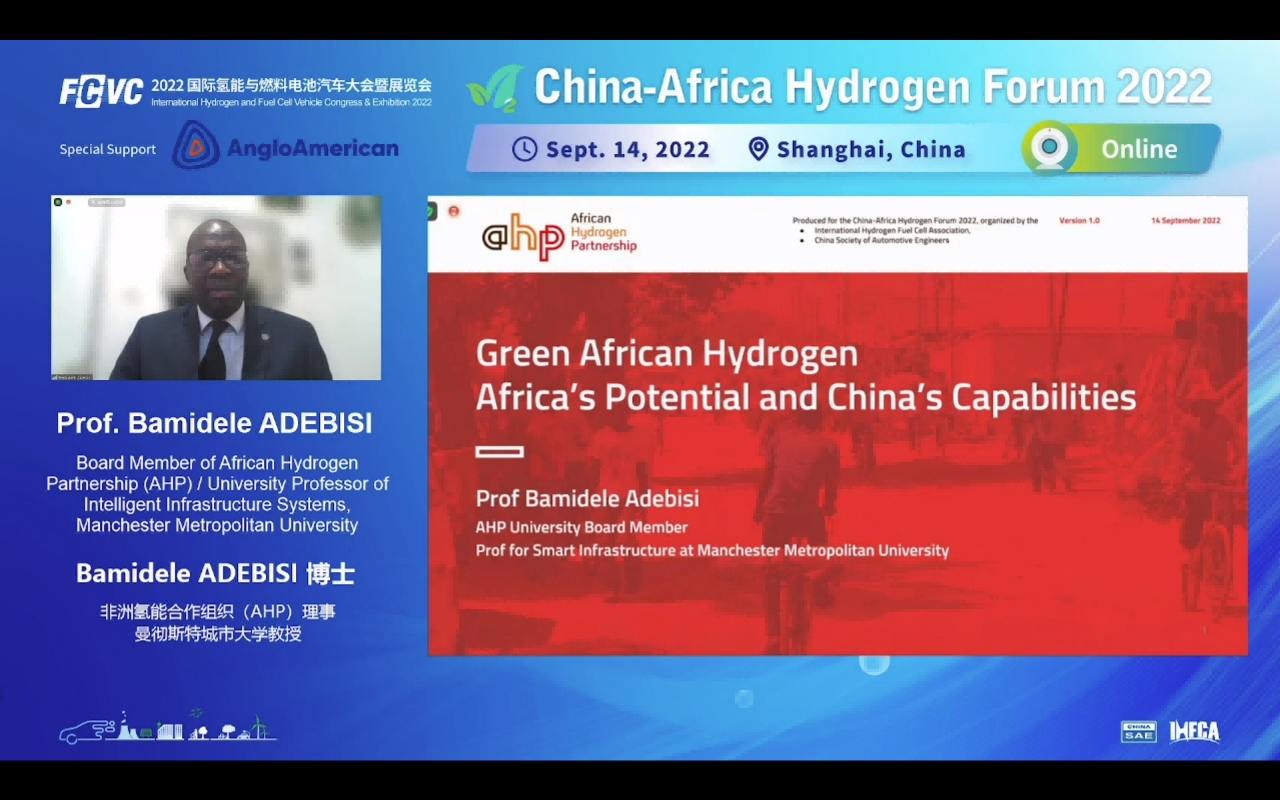
Dr. Miao Ping, assistant CEO, Director of R&D Center of National Institute of Clean and Low Carbon Energy, introduced the contribution of China Hydrogen Alliance and Beijing Institute of Low Carbon and Clean Energy in the development of hydrogen energy. China Energy Group has actively established a global green hydrogen energy supply chain. The entire China has hydrogen energy layout, including the green hydrogen center established in Xinjiang, the energy center in Hubei, the offshore wind hydrogen energy center in Guangdong, the wind and solar hydrogen energy center in Shandong, and so on. At present, there are three national projects, which are the scenery hydrogen production in Zhangjiakou, the SOEC high temperature electrolytic hydrogen and the purification of hydrogen from fuel cells respectively.
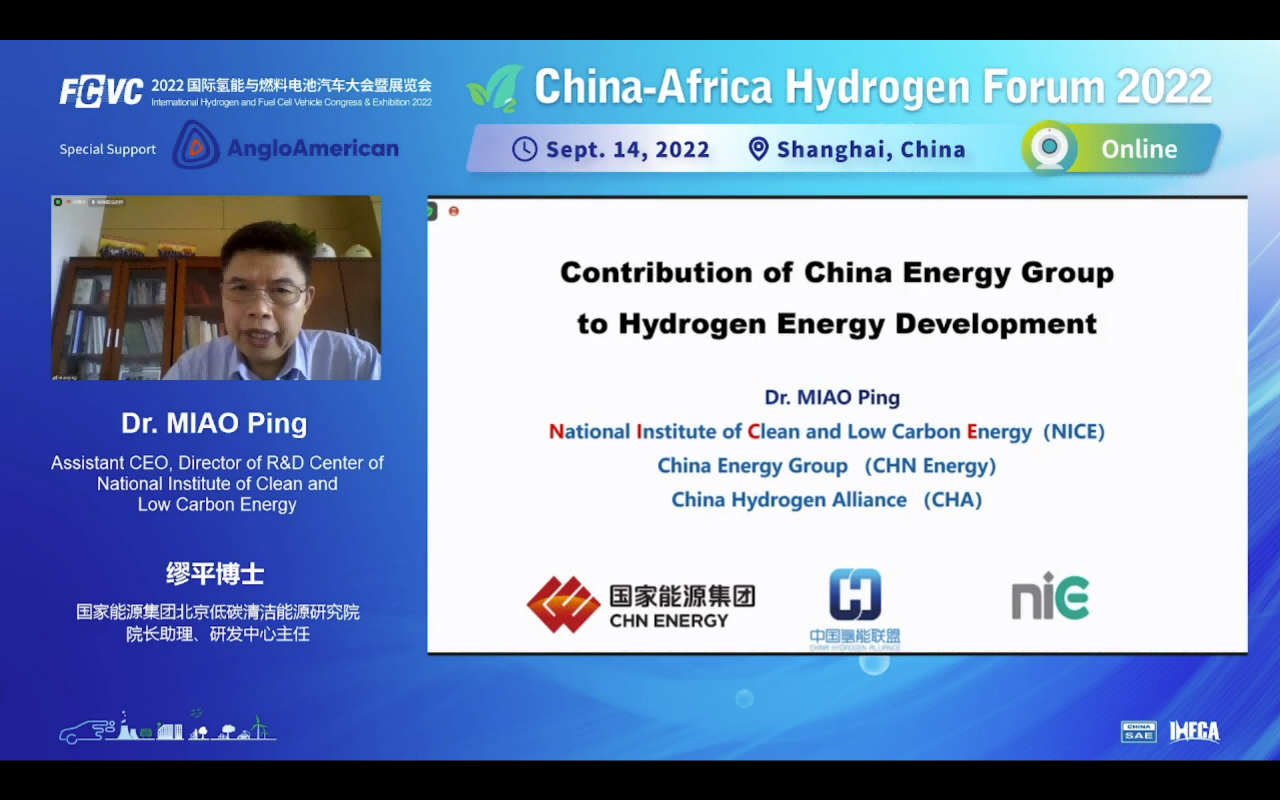
Ms. Fahmida Smith, Principal Market Development of AngloAmerican, described Anglo American's contribution and presence in the renewable energy industry over the years. Addressing the storage and efficiency of renewable energy sources is critical to sustainable mining development plans, by integrating various innovations into mining processes to achieve decarbonization. The “Hydrogen Valley” in Africa demonstration projects through the full hydrogen value chain will bring together industry and research to achieve its strategic objectives. Among them, the "Hydrogen Valley" feasibility study is strategic, providing a blueprint for the local hydrogen energy economy and helping to establish an alliance of strategic industrial partners to facilitate the development of hydrogen freight corridors in key regions such as South Africa and the United Kingdom. AngloAmerican also demonstrated its operational hybrid fuel cell and power cell mining hydrogen heavy truck weighing around 500 tonnes, which explains how it will actively develop hydrogen and support the local economy to create a sustainable hydrogen future in south Africa.
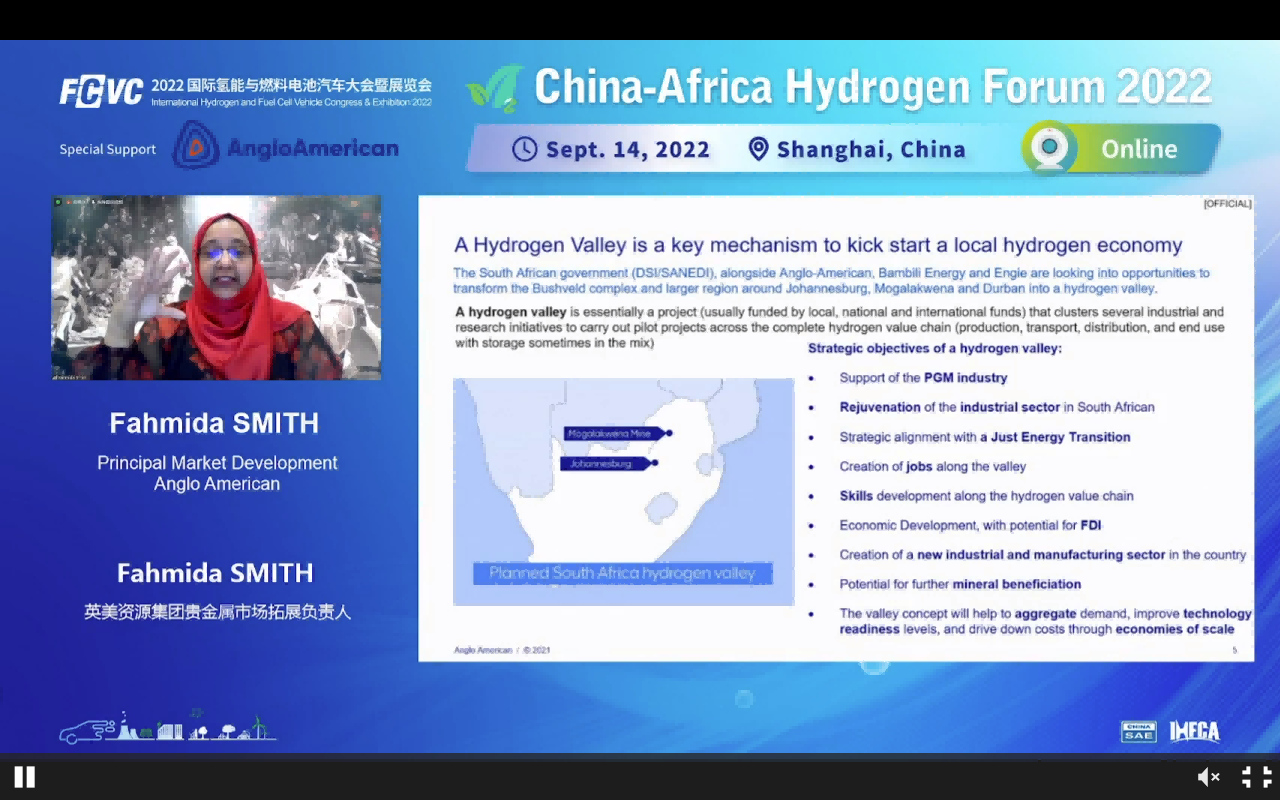
Ms. Audrey Ma, vice president of REFIRE Group, introduced the major countries and timelines of hydrogen energy strategies and targets released globally in recent years. From the global annual cumulative sales data, she analyzed that hydrogen fuel cell heavy trucks have helped to reduce carbon dioxide equivalent emissions and will unlock greater opportunities. China has launched a strong government incentive program, with a maximum subsidy reward of RMB 1.7 billion for each demonstration city cluster over four years. Europe has planned to invest 575 billion euros in the hydrogen value chain by 2030, and Germany, Spain, France and Portugal have completed the budget application process. The government framework can better help the development of the whole hydrogen energy industry and the application.
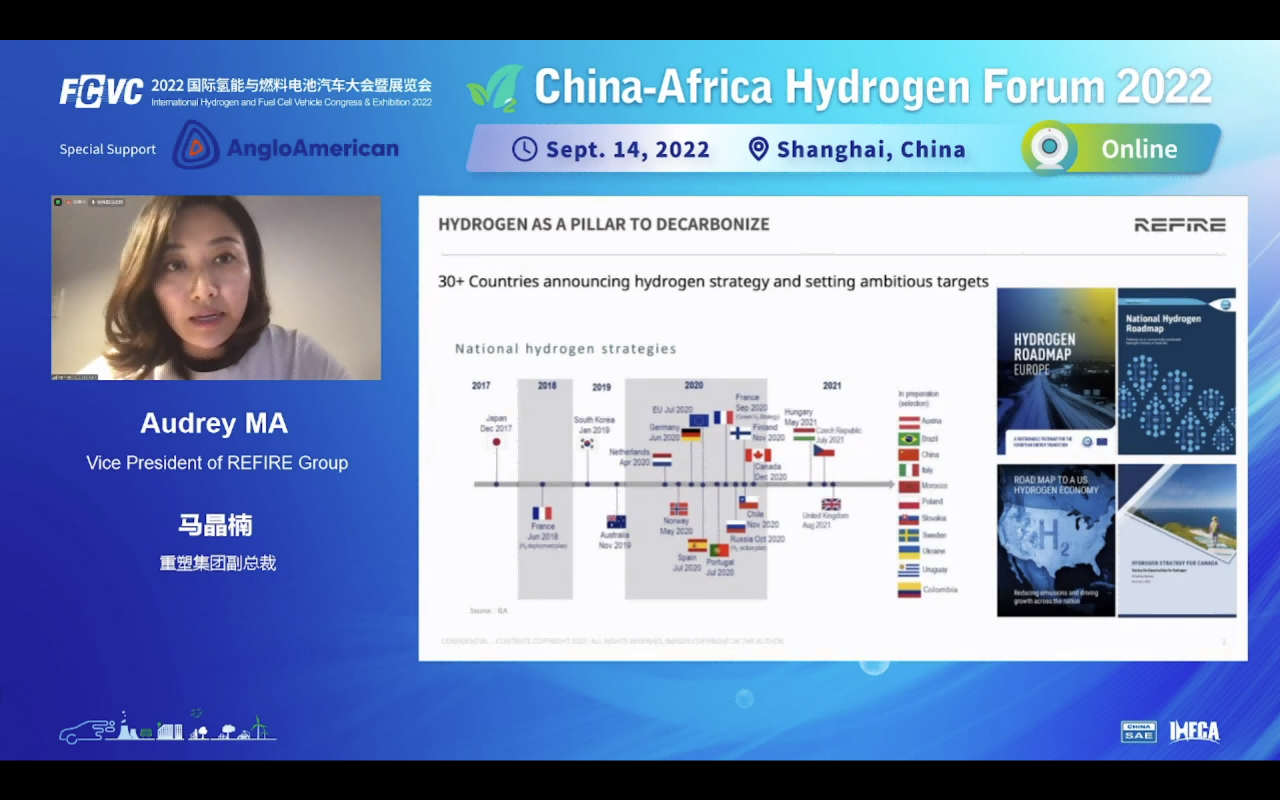
Ms. Zanele Salman, Low Carbon Energy Solution Business Development, Sasol, talked about the energy transition as a major opportunity for South Africa. South Africa must decarbonize over the next 30 years and transform into a low-carbon, climate-resilient and innovative economy. This transition needs to be done in a way that is equitable and addresses inequality, poverty and unemployment to ensure that no one is left behind and that South Africa's future economy is socially resilient and inclusive.
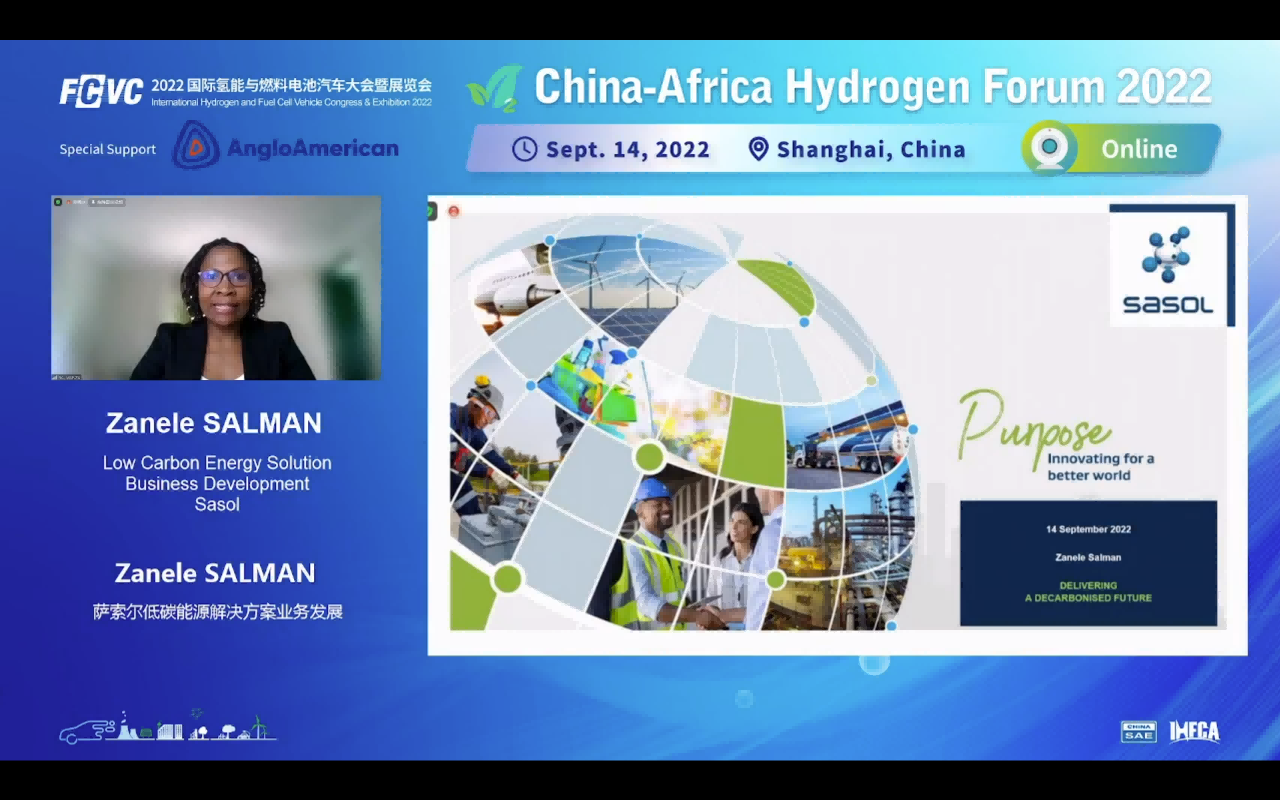
After the excellent presentations by the guest speakers, representatives from all parties discussed and exchanged in-depth views on the hydrogen and fuel cell industry in the roundtable section. From three aspects: the main challenges facing the hydrogen industry in Africa and China, the key areas that developing countries should prioritize in the hydrogen industry, the role of China and Africa in the development of the hydrogen industry and the opportunities for continuous progress, the current regional issues and globalization opportunities faced by the industry were explored, a mechanism for China-Africa industry-academia-research-government talks was established, and the areas of cooperation between all parties were explored and deepened, providing opportunities for developing countries in seizing the energy transition This will help China and the world to achieve the goal of reaching the carbon peak and promote industrial upgrading.
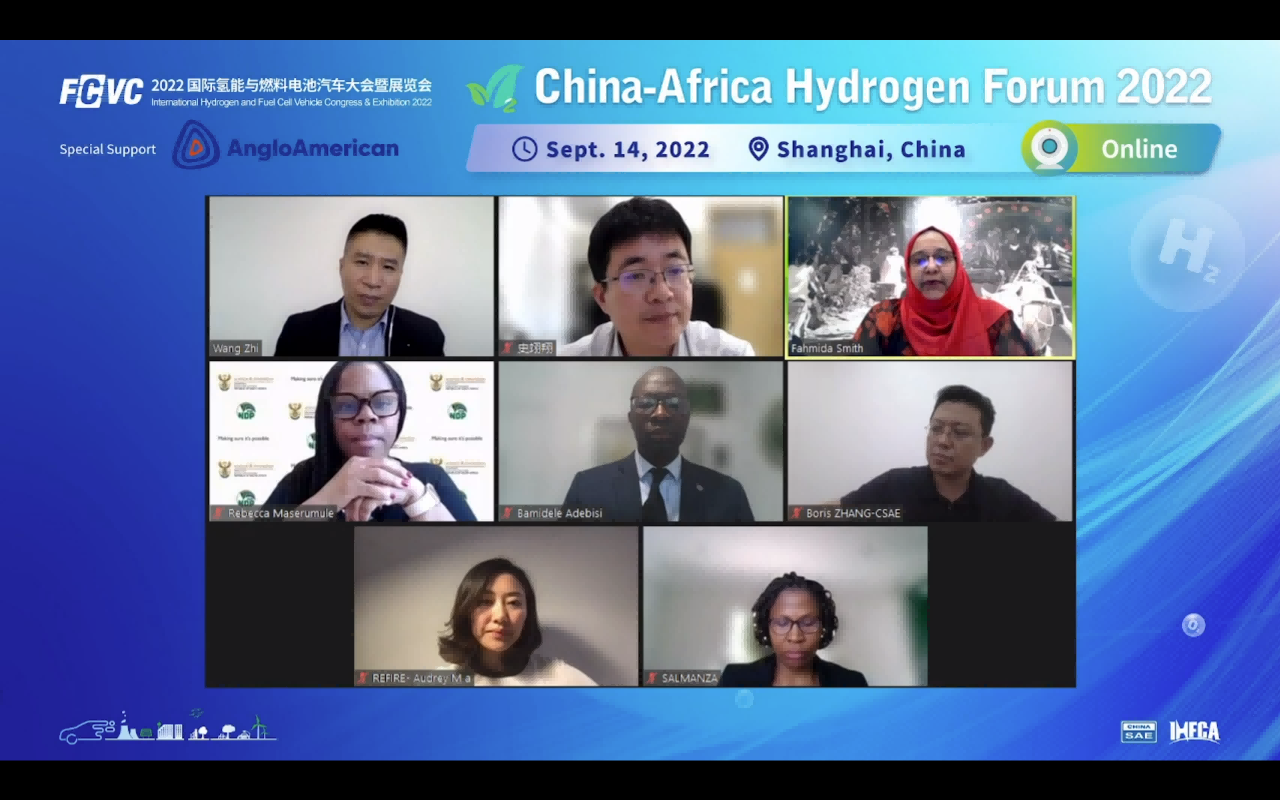
Hydrogen energy is a recognized clean energy carrier, as a link of multi-energy transmission and integration interaction, one of the cores of the future clean and low-carbon energy system, the development of hydrogen energy has become an important direction of the global energy technology revolution, and the development of hydrogen fuel cell applications plays a crucial role in the development of the popularity of hydrogen energy.
In order to promote the hydrogen and fuel cell technologies and the development of industry, the International Hydrogen Fuel Cell Association, together with China Society of Automotive Engineers held " The International Hydrogen and Fuel Cell Vehicle Congress (FCVC)" annually since 2016, contributing to the sustainable development of human society. by promoting the hydrogen and fuel cell technology in the field of international exchange, exhibition and cooperation, realize win-win industry. Since the first establishment of the concurrent exhibition in 2018, the number of exhibitors and visitor scale of the concurrent technical exhibition of the conference have been increasing year by year, and it has developed into one of the largest, most professional and influential events in the field of hydrogen energy and fuel cell vehicles in China, and is a platform to gather the core technologies and products of the whole industrial chain of hydrogen energy and fuel cell vehicles.
FCVC 2022 will be held in late 2022 at the Shanghai Automotive Exhibition and Convention Centre. The event will continue its international, authoritative, professional, and forward-looking features to promote the development of the hydrogen and fuel cell vehicle industry this year, and we sincerely invite the attention and participation of all sectors of society.